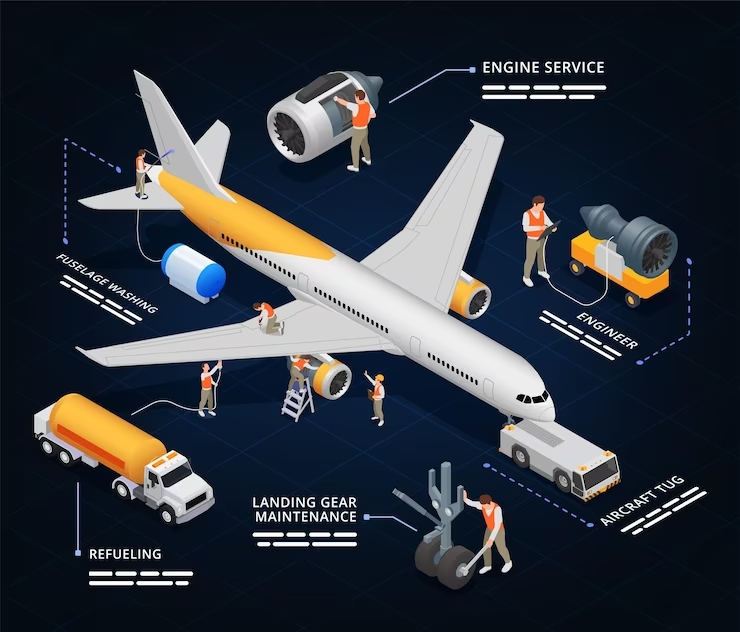Table of Contents
Introduction
Aerospace engineering is an exhilarating field that allows individuals to play a significant role in designing and developing advanced aircraft and spacecraft. If you’re a 10th-grade student with aspirations to enter this captivating domain, it’s crucial to make informed decisions regarding subjects, specialized courses, future prospects, and the path to expertise. In this comprehensive guide, we will provide you with detailed insights into every facet of building a rewarding career in aerospace engineering.
Choosing the Right Subjects in 11th and 12th Grade
The journey towards a successful career in aerospace engineering commences during high school. To prepare for this path, it’s imperative to opt for a science stream with a strong emphasis on Physics, Chemistry, and Mathematics. These subjects form the bedrock for developing the analytical and problem-solving skills that are indispensable in aerospace engineering.
During your 11th and 12th grades, you’ll delve deeper into these subjects, acquiring the necessary foundation for your future studies in aerospace engineering. It’s particularly essential to focus on Physics as it underpins your understanding of aerodynamics, propulsion systems, and spacecraft dynamics.
Exploring Specialized Courses after 10th Grade
After completing your 10th-grade education, you have the opportunity to explore specialized courses that can provide you with a head start in aerospace engineering. Many reputable institutes and academies offer pre-engineering programs that concentrate on strengthening your foundations in mathematics and science. These courses typically cover advanced topics in these subjects, equipping you with a solid preparation for the rigorous coursework you’ll encounter in aerospace engineering at the college level.
Understanding the Future Scope
One of the most compelling aspects of pursuing a career in aerospace engineering is the promising future it holds. The aerospace industry is in a constant state of evolution, with exciting developments in space exploration, defence technology, and commercial aviation. This dynamic landscape creates a vast array of opportunities for aerospace engineers, making it a field with long-term growth potential.
Career Opportunities in Aerospace Engineering
Aerospace engineers enjoy the privilege of working in diverse sectors, including commercial aviation, military defence, space agencies, and research institutions. Within aerospace engineering, your career options span a wide spectrum, encompassing roles in aircraft design, propulsion systems, avionics, satellite technology, and more.
Becoming an Expert in the Field
Achieving excellence in aerospace engineering demands an unwavering commitment to continuous learning and professional growth. Becoming an expert in this field necessitates dedication and effort. Here’s a comprehensive approach to working toward expertise:
- Continuous Education: Consider pursuing a bachelor’s or master’s degree in aerospace engineering or a closely related field. These academic programs offer in-depth knowledge and specialization opportunities.
- Stay Informed: Keep abreast of the latest developments in aerospace technology. Attend industry conferences, read reputable aerospace publications, and follow advancements in your area of interest.
- Network and Collaborate: Forge connections with industry professionals and mentors. They can offer invaluable guidance, share insights, and provide access to exciting career opportunities.
The Importance of Mathematics and Science
Mathematics and science serve as the cornerstones of aerospace engineering. They are pivotal for grasping the fundamental principles of flight, mechanics, thermodynamics, and materials science. A strong foundation in these subjects empowers you to effectively tackle intricate engineering challenges throughout your career.
Building Strong Problem-Solving Skills
Aerospace engineers regularly confront intricate challenges. Cultivating robust problem-solving skills is imperative for surmounting these obstacles effectively. Engage in practical problem-solving exercises, participate in real-world projects, and seek guidance from professors and seasoned engineers to refine your skills.
Staying Informed About Technological Advancements
Innovation is at the heart of aerospace engineering. To remain competitive and relevant in the field, you must stay attuned to technological advancements. Subscribe to aerospace industry journals, participate in technology conferences, and actively engage in discussions related to emerging aerospace technologies.
Internships and Practical Experience
Securing practical experience through internships with aerospace companies is invaluable. These opportunities enable you to apply classroom knowledge to real-world scenarios and gain insights into the execution of aerospace projects. Seek internships aligned with your interests and career objectives to maximize your learning.
Networking and Industry Connections
Establishing a network of industry professionals and mentors can significantly enhance your aerospace engineering journey. Attend industry events, join aerospace-related clubs or organizations at your educational institution, and connect with professionals on platforms such as LinkedIn. Engaging with seasoned individuals can offer guidance, job leads, and valuable insights into the field.
Aerospace Engineering Degrees
Pursuing a formal degree in aerospace engineering is a common route to enter the field. Here’s a brief overview of the educational path:
- Bachelor’s Degree: Most aerospace engineers commence their journey with a Bachelor of Science (B.Sc.) or Bachelor of Engineering (B.Eng.) in Aerospace Engineering or a related discipline. This typically entails a four-year program encompassing core engineering principles and aerospace-specific coursework.
- Master’s Degree: For those aspiring to attain advanced expertise or pursue specialized roles, a Master of Science (M.Sc.) or Master of Engineering (M.Eng.) in Aerospace Engineering is an option. This typically involves an additional two years of study.
Job Roles and Responsibilities
Aerospace engineers can assume various roles, each carrying distinct responsibilities. Here are some common positions:
- Aircraft Design Engineer: Responsible for conceiving and designing aircraft while ensuring they meet safety and performance standards.
- Propulsion Engineer: Focuses on the development of propulsion systems for aircraft and spacecraft.
- Avionics Engineer: Specializes in aircraft electronic systems, including communication, navigation, and control systems.
- Research and Development Engineer: Engages in innovative projects aimed at advancing aerospace technology.
- Quality Control Engineer: Ensures that aerospace components and systems meet stringent quality and safety standards.
Conclusion: Embarking on Your Aerospace Journey
In conclusion, a career in aerospace engineering promises exciting prospects for those passionate about aviation, space exploration, and technology. By meticulously selecting your subjects, acquiring practical experience, and maintaining a steadfast commitment to continuous learning, you can embark on a fulfilling journey within this dynamic field.
FAQs
- What are the core subjects needed for aerospace engineering?
- To prepare for aerospace engineering, focus on Physics, Chemistry, and Mathematics during your 11th and 12th grades.
- Can I enter aerospace engineering without a specialized course after the 10th grade?
- While specialized courses can be beneficial, a science stream in the 11th and 12th grades, with a strong foundation in Physics, Chemistry, and Mathematics, is the primary requirement.
- What are the future prospects in aerospace engineering?
- The aerospace industry continues to grow, offering numerous opportunities in research, development, and innovation.
- What is the average salary of an aerospace engineer?
- Salaries vary but are generally competitive, with experienced engineers earning higher incomes.
- How can I stay updated with aerospace technology advancements?
- Staying informed involves reading industry publications, attending conferences, and joining professional organizations in the aerospace field. Building a network of industry professionals can also help you stay updated.
For more courses and in-depth information, you can visit our Courses Page and explore other options.
Image by macrovector on Freepik


Leave a Reply